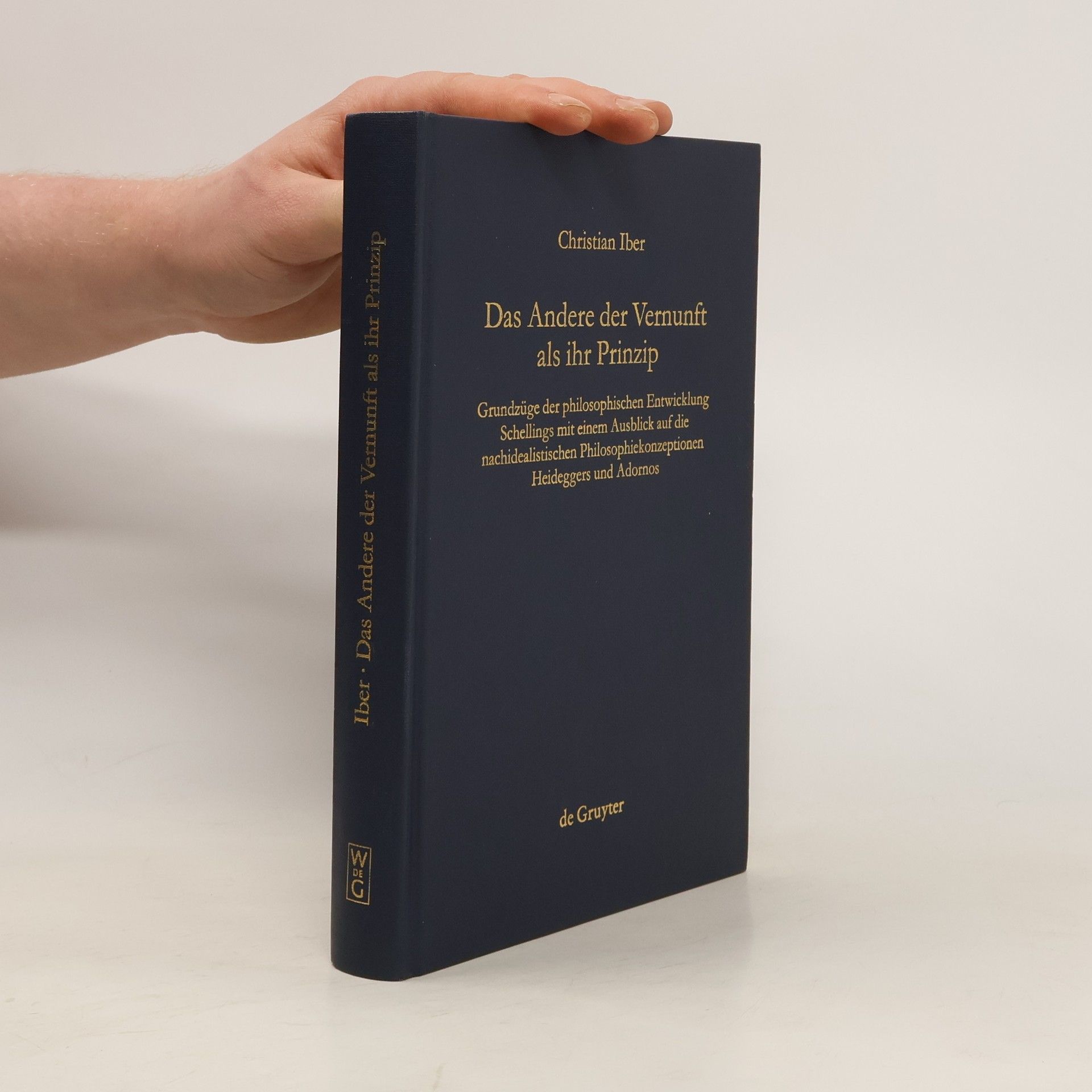Das Andere der Vernunft als ihr Prinzip
Grundzüge der philosophischen Entwicklung Schellings mit einem Ausblick auf die nachidealistischen Philosophiekonzeptionen Heideggers und Adornos
Frontmatter -- Vorwort -- Inhalt -- Einleitung -- 1. Kapitel. Schellings philosophische Frühschriften: Philosophie als Vernunftsystem aus unvordenklichem Prinzip -- 2. Kapitel. Transzendental- und Naturphilosophie: Das Absolute als Selbstbewußtsein oder Subjekt-Objekt des Geistes -- 3. Kapitel. Das System des transzendentalen Idealismus: Vom Selbstbewußtsein zur absoluten Identität -- 4. Kapitel. Identitätsphilosophie: Das vernünftige Absolute -- 5. Kapitel. Freiheits- und Weltalterphilosophie: Vernunftsystem, Freiheit und Geschichte -- 6. Kapitel. Die Erlanger Vorlesung: Vom geschichtlichen Absoluten zum Absoluten als unvordenklichem Daßsein -- 7. Kapitel. Spätphilosophie: Vernunftsystem und unvordenkliches Daßsein -- 8. Kapitel. Perspektiven: Ausblick auf die Dialektik der Vernunft und ihres Anderen in der nachidealistischen Philosophie am Beispiel von Heideggers und Adornos Philosophiekonzeption -- Literaturverzeichnis -- Zeittafel -- Backmatter
